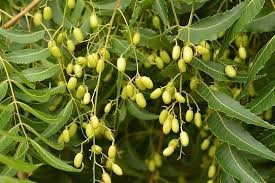
Neem has been used to combat malaria, a disease that kills thousands of people each year in developing countries.
Neem has been used in traditional medicine to treat a variety of health problems including malaria, cough, nausea, vomiting, fever, jaundice, gonorrhea, intestinal worm infestation, skin disorders, boils, ulcer, eczema and leprosy.
Neem, also known as Azadirachta indica, is a tree native to India and Africa that has been used for centuries for its medicinal properties. The leaves, bark, and seeds of this tree have been used to treat a variety of health conditions, ranging from malaria to leprosy. In this article, we will explore the ethnomedical uses of Neem and the biological and pharmacological activities that have been discovered through scientific studies.
Also read: Garlic: A natural remedy with multiple virtues
Neem has been used in traditional medicine to treat a variety of health problems including malaria, cough, nausea, vomiting, fever, jaundice, gonorrhea, intestinal worm infestation, skin disorders, boils, ulcer, eczema and leprosy. The leaves and bark of the tree are used in the form of decoction, infusion or powder to treat these health problems.
Scientific studies have been conducted to validate the medicinal properties of Neem. Compounds present in the leaves and bark of the tree have been shown to have an inhibitory effect on normal feeding behavior. The leaves and bark are also used as antimalarial agents and their effectiveness has been confirmed by several laboratory studies. The antimalarial properties of Neem have been attributed to compounds such as nimbolide and gedunin.
Neem has been used to combat malaria, a disease that kills thousands of people each year in developing countries. The leaves and bark of the tree have been used to treat symptoms of malaria, such as fever, cough, and chills. Studies have also shown that Neem oil can be used to control the breeding of mosquitoes that transmit the disease.
Neem has also been used to treat other health problems, such as skin disorders, boils, ulcers, and eczema. The leaves and bark of the tree have anti-inflammatory and antiseptic properties that help relieve the symptoms of these health problems.
Neem is a tree with exceptional medicinal properties that has been used for centuries to treat a variety of health conditions. The leaves, bark, and seeds of the tree have antimalarial, anti-inflammatory, and antiseptic properties that make them useful in treating health conditions such as malaria, skin disorders, and infections. Scientific studies have validated the medicinal properties of Neem, making it a valuable tool for both traditional and modern medicine.
Danielle NGO NGEN Stg













